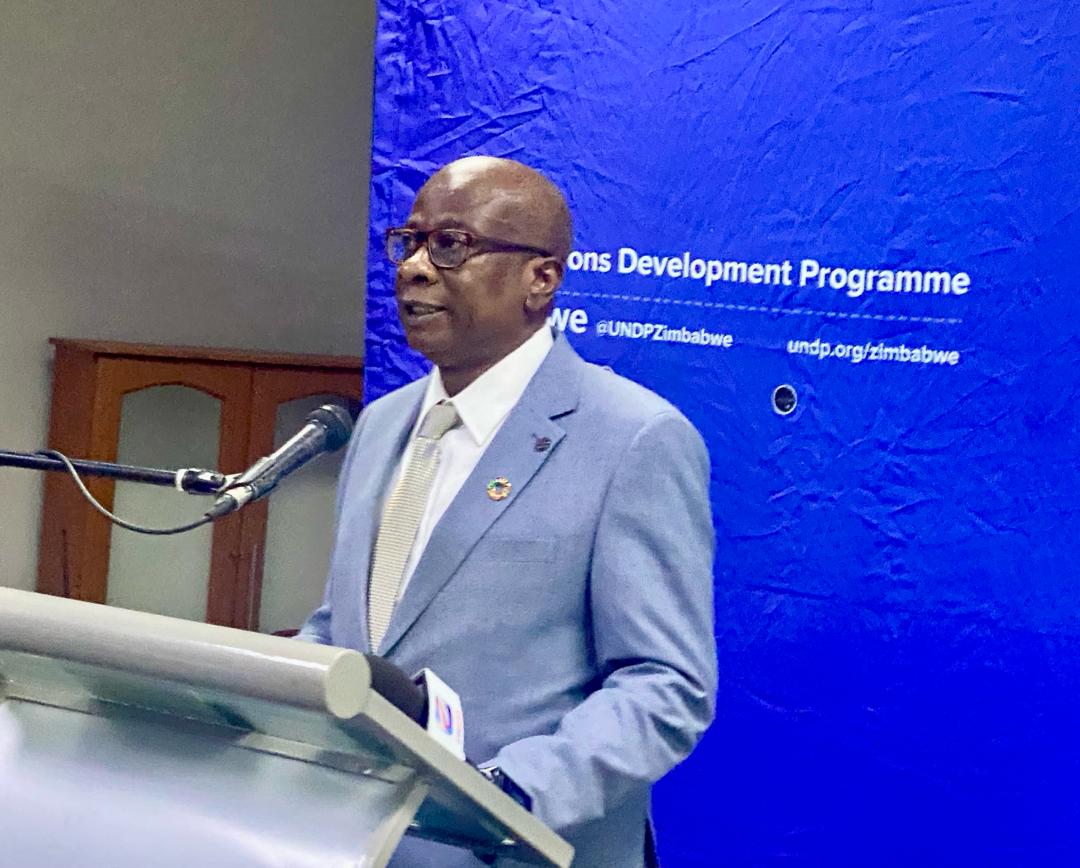|
Getting your Trinity Audio player ready...
|
The world is witnessing increasing polarization, populism, nativism, exclusion, and conflict, according to the 2023-24 Human Development Report (HDR).
This was revealed by His Excellency Mr. Edward Kallon, the UN Resident and Humanitarian Coordinator at the dialogue session of the 2023-2024 HDR today 20 March 2024 at Cresta Lodge in Harare.
Key dignitaries during the dialogue session included Honourable Dr. Fredrick Shava, Minister of Foreign Affairs and International Trade; Senior Government Officials; Dr. Ayodele Odusola, the UNDP Resident Representative; UN Heads of Agencies; and representatives from civil society organisations, among others.
The United Nations Development Programme’s Human Development Report for 2023-2024 was titled ‘Breaking the Gridlock: Reimagining Cooperation in a Polarized World’.
HE Kall0n said the theme of the session is critical as the world delves into the challenges of increasing polarization, populism, and conflict despite reaching record levels in the 2023 global Human Development Index.
“After an unprecedented two-year decline, the 2023 global Human Development Index average estimate has reached a record level. However, the sentiment among the populations worldwide is not celebratory – we’re witnessing increasing polarization, populism, nativism, exclusion, and conflict. The new Human Development Report analyses this paradox.
“Ladies and Gentlemen. The 2023-2024 HDR argues that the international community’s failure to act collectively on shared global challenges is both a cause and a consequence of increasing polarization, distrust, and conflict around the world. Progress feels harder to grasp, especially when planetary pressures are brought into view; our standard development measures are clearly missing some things. One of those things may be the disempowerment of people—gaps in human agency—which is taking combined hits from new configurations of global complexity and interdependence, uncertainty, insecurity, and polarization,” HE Kallon said.
He clarified that polarization is different from disagreements in politics and tastes. He said going beyond differences in opinions, it sorts people into different groups defined by one single group identity or political position coupled with animosity towards those with different viewpoints.
“It reduces differences in opinions to “us vs. them” attitudes. The HDR warns that inequality between groups of countries is rising after three decades of declining trends. This phenomenon is occurring at the same time when we’re experiencing severe climate disruptions, conflicts, and economic slowdown. Rising inequality may exacerbate our situation if we don’t take collective action on these mounting crises that affect us all.”
The report calls for improvement in international cooperation. It makes the case for addressing polarization and empowering people to feel more in control over their lives to safeguard a collective future.
“The report underlines that we can do better than this. Better than runaway climate change and pandemics. Better than a spate of unconstitutional transfers of power amid a rising, globalizing tide of populism. Better than cascading human rights violations and unconscionable massacres of people in their homes and civic venues, in hospitals, schools and shelters,” HE Kallon added.
The report highlights that we enjoy unprecedented wealth, knowhow, and technology—unimaginable to our ancestors—that with more equitable distribution and use could power bold and necessary choices for peace and for sustainable, inclusive human development on which peace depends.
He jolted delegates to think objectively: “So why does pursuing the ambitions of the 2030 Agenda for Sustainable Development and the Paris Agreement feel like a half-hearted slog through quicksand? Why in many places does restoring peace, even pauses or ceasefires as hopeful preludes to peace, feel so elusive? Why are we immobilized on digital governance while artificial intelligence races ahead in a data goldrush?
“In short, why are we so stuck? And how do we get unstuck without resorting myopically to violence or isolationism? These questions motivate the 2023/2024 Human Development Report.”
The production of COVID-19 vaccines, which saved millions of lives, relies on global supply chains, although, tragically, many more lives could have been saved if vaccine coverage had been more equitable.
At COP28, the world established a new loss and damage fund to benefit more than 3 billion people, with pledges totalling over $600 million. Global clean energy investment, and the jobs and opportunities that come with it, reached an all-time high of $1.8 trillion in 2023, almost twice the amount in 2020.
Despite modest progress and collaboration, HE Kallon said people are looking for more solutions and a way forward. This can only be addressed via shared ambition that brings everyone along (not necessarily on everything) in areas of cooperation that are not zero-sum, built on a bedrock of generalized trust under the UN Charter.






